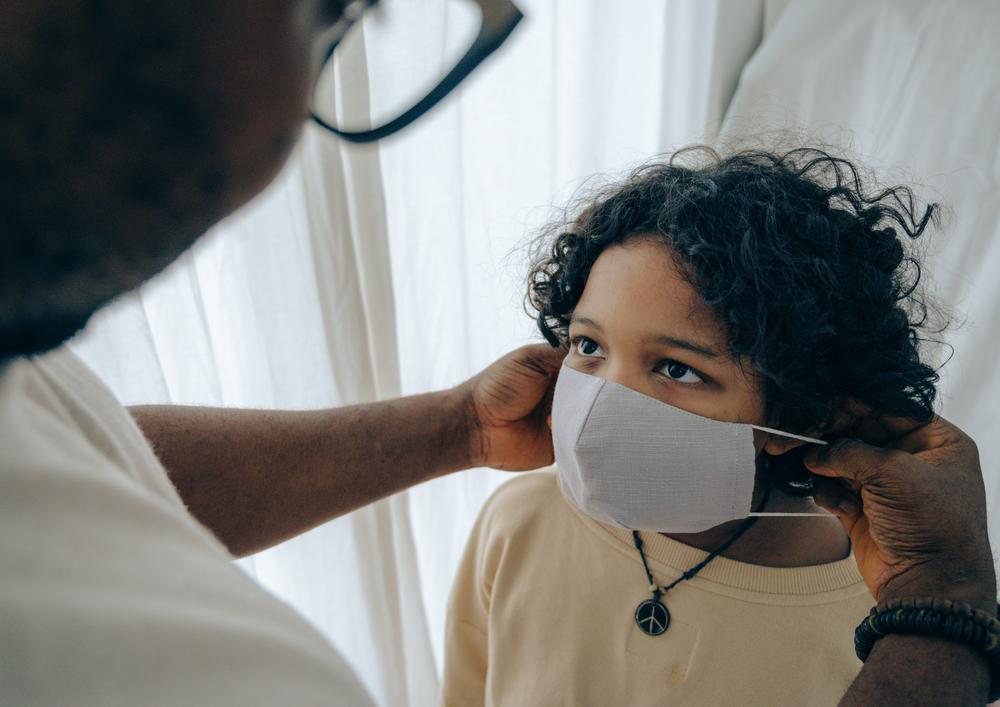
Caption
Children between 12 and 17 are eligible to enroll in COVID-19 vaccine clinical trials.
Credit: Photo by Ketut Subiyanto from Pexels
More than 1 million adult Georgians have had at least one dose of a coronavirus vaccine made either by Pfizer or Moderna. But the vaccines haven’t yet been tested on kids. Now parents can decide whether to enroll their adolescent children in clinical trials of COVID-19 vaccines. GPB’s Ellen Eldridge reports.

Children between 12 and 17 are eligible to enroll in COVID-19 vaccine clinical trials.
Hailey Monette’s 16-year-old son is a high school junior who started the year in virtual classes. Monette did not want her son to return to school until he could be vaccinated against COVID-19.
But it became a decision between physical health and mental health.
RELATED: The Impact Of COVID-19 On Youth Suicide Rates In Georgia
The former A and B student’s grades plummeted by September. So, he returned to in-person instruction at a school that does not require face masks for students.
"So, we're really worried every day," Monette said. "I feel, like, nervous that I'm sending him into school."
But now there’s a chance Monette’s son could soon get the vaccine — or perhaps only a placebo. They don’t know. That’s because Monette signed her son up to be a part of the Moderna study.
Cathy Moore’s family made a similar risk assessment.
Moore called a friend who works at the National Institute of Health and asked for advice when she saw enrollment was opening up.
"I updated her on my kids, any medical issues that they have, medications that they take and everything, and (asked) what would she do?" Moore said. "And she immediately shot back that if it was up to her, she would absolutely enroll them."
Moore and Monette are both white. And their trust that the vaccine trial is safe for their kids mirrors the trust white adults had in earlier trials. But some Black and brown parents are not as trusting.
According to Census data, Black Americans account for roughly 13% of the U.S. population but make up only 5% of clinical trial participants. Latino Americans account for roughly 19% of the population in the U.S. but make up only 1% of clinical trial participants.
Camille Brown is Black. She has a 16-year-old daughter and a 12-year-old son. She’s been homeschooling them since before the pandemic.
She believes that by restricting junk food and encouraging exercise her kids don’t need shots for influenza or COVID-19.
And Brown will not sign them up for a clinical trial.
"Me putting them in a study where there's no telling what the ramifications would be, I believe would be pretty much negligent on my part," Brown said.
Dr. Lilly Immergluck, a pediatric infectious disease specialist with Morehouse School of Medicine, said she understands why parents like Brown may not want their children in a coronavirus vaccine trial even though, statistically, Black and Latino adolescents are more likely to be hospitalized with COVID-19.
"They're drawing from distrust that may be tied to some of the inequities we see in health care and health care delivery," Immergluck said.
That sets up a Catch-22. How do you get parents of color to trust coronavirus vaccines for their children if those children are not represented in vaccine trials? Morehouse is relying on public education and community engagement.
Meanwhile Pfizer has completed enrolling participants in its study of 12- to 15-year-olds.
Next, the elementary school-aged kids will get their trial, Immergluck said.
"I want to do it systematically," she said. "We've got to see how the data comes out for the 12- to 17-year-olds, (then) go on down."
Dr. Anthony Fauci, the nation’s leading disease expert, said children as young as 6 might be authorized for COVID-19 vaccine by September.
All of this matters to educators planning the next school year.
Already, Cobb County Schools have said they will offer remote learning again this fall.